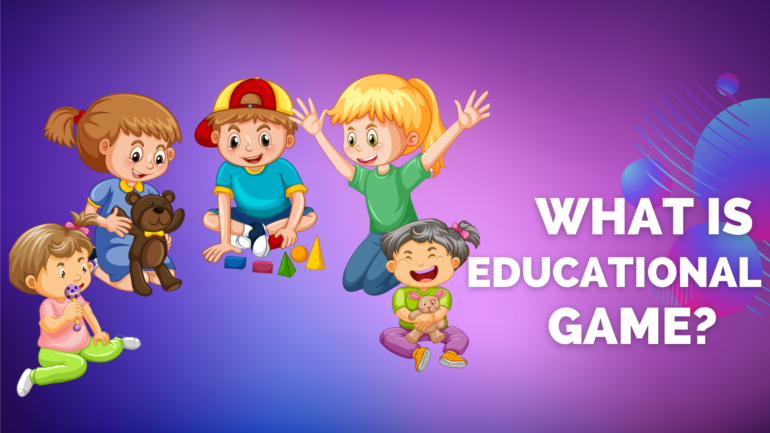Unlocking Learning Through Fun: The Power of Educational Games

In an age where technology and entertainment merge seamlessly, educational games have emerged as a powerful tool for engaging students and enhancing their learning experiences. From toddlers to teenagers, these games offer a dynamic and interactive way to grasp complex concepts while having a blast. If you’re wondering how educational games can benefit learners and why they should be a part of every strategy, read on!
What Are Educational Games?
Educational games are specially designed activities that combine fun with learning objectives. Unlike traditional methods, these games engage players through interactive challenges that promote critical thinking, problem-solving, and knowledge retention. They can be digital apps, board games, or physical activities, each tailored to different learning needs and age groups.
The Benefits of Educational Games
1. Enhances Engagement and Motivation
One of the standout benefits of educational games is their ability to boost engagement. Traditional learning methods can sometimes be monotonous, but inject a sense of excitement into learning. By turning lessons into challenges or quests, these games capture students’ attention and motivate them to participate actively.
2. Reinforces Learning Through Repetition
Repetition is key to mastering any new skill, and educational games excel in this area. Through repeated gameplay, students can practice and reinforce concepts until they become second nature. For instance, a math game that requires players to solve problems to advance to the next level ensures that they repeatedly engage with mathematical concepts.
3. Supports Diverse Learning Styles
Every student has a unique learning style, and educational games cater to these diverse needs. Visual learners can benefit from games with graphic-rich interfaces, while auditory learners may excel in games with narrated instructions. Kinesthetic learners, who thrive on physical activity, can enjoy games that involve movement and hands-on interaction.
4. Encourages Critical Thinking and Problem-Solving
Many educational games are designed to challenge players to think critically and solve problems. These games often present scenarios that require strategic thinking, logical reasoning, and creativity. For example, puzzle games might require players to use deductive reasoning to unlock the next level or solve a complex challenge.
5. Builds Social Skills Through Collaboration
Educational games aren’t just for solo play. Many are designed for group play, which can foster teamwork, communication, and social skills. Multiplayer games often require players to collaborate, share ideas, and work together to achieve common goals, which mirrors real-world interactions and teamwork.
6. Provides Instant Feedback
Immediate feedback is crucial in the learning process, and educational games offer this advantage. When a player makes a mistake or achieves a milestone, the game typically provides instant feedback, allowing learners to understand their progress and areas for improvement right away.
Types of Educational Games
1. Digital Educational Games
Digital games include apps, online, and software. They often feature interactive elements, animations, and adaptive learning technologies. Popular examples include “Khan Academy Kids,” which covers a range of subjects through engaging activities, and “Prodigy Math,” which turns math practice into an adventure.
2. Board Games
Board games are tangible and often encourage face-to-face interaction. They can range from trivia games like “Jeopardy!” to strategy games that teach resource management and critical thinking. For example, “The Game of Life” can teach students about decision-making and life skills.
3. Physical Games
Physical educational games are designed to get learners moving. These can include activities like scavenger hunts that require problem-solving or physical challenges that integrate educational content. For instance, a geography scavenger hunt could involve finding and learning about different countries based on clues.
4. Role-Playing Games (RPGs)
Role-playing games involve players taking on specific roles and navigating through scenarios based on their characters’ attributes. RPGs can be particularly effective in teaching history, literature, and social studies by immersing students in historical events or fictional narratives.
Incorporating Educational Games into Learning
1. Align with Curriculum Goals
To maximize the benefits of educational games, align them with curriculum goals. Choose games that complement the subjects being taught and reinforce the learning objectives. For instance, if students are learning about ancient civilizations, a game that involves exploring historical sites or solving challenges related to ancient cultures can be highly effective.
2. Create a Balanced Approach
While are powerful, they should be used as a supplement rather than a replacement for traditional learning methods. A balanced approach that combines games with lectures, readings, and hands-on activities can provide a comprehensive learning experience.
3. Monitor Progress and Adapt
Keep track of students’ progress and adapt the use of educational games based on their performance and feedback. Some games offer analytics and reports that can help educators understand how students are engaging with the content and identify areas where additional support may be needed.
4. Encourage Family Involvement
Educational games aren’t just for the classroom. Encourage family involvement by recommending games that students can play at home. This not only extends learning beyond school but also fosters a supportive learning environment at home.
